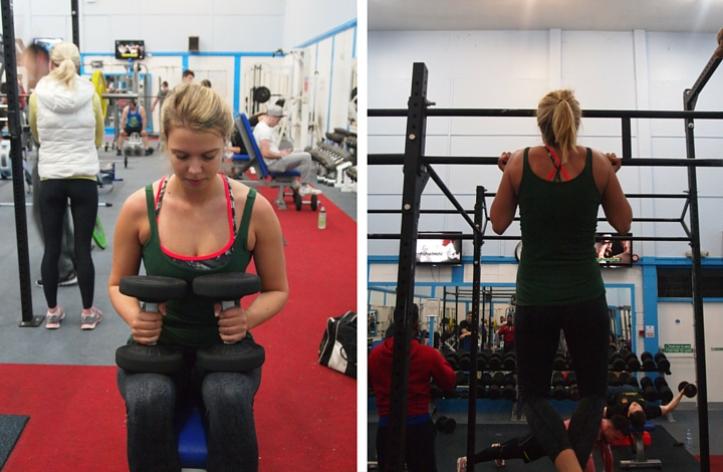
With it being Eating Disorders Awareness Week, run by national charity beat, I thought it would be an ideal opportuinty to invite in a guest writter to tell us all about her story and how weight training helped her recover.
With nearly three quarters of a million people in the UK affected by one of these illnesses [1], with around 80 percent of anorexics and 50 percent of bulimics presenting with exercise dependence [2], it’s not uncommon for personal trainers to come across unwell individuals. Three years ago I met a young lady who was struggling to recover from anorexia and bulimia, which she’d suffered from since her early teens, so for about seven years. Here, she shares her story, showing how personal training and correct nutritional guidance helped her overcome her illness and regain her health and happiness.
“In September 2012 I decided that I needed to finally kick my eating disorder – every last bit of it. Although I was just about managing to go about my normal life it still influenced me constantly, every day, and I finally managed to decide that enough was enough. I needed to learn how to nourish by body and how to make is strong, but at the same time know that my weight wouldn’t spiral out of control. It was time to remember to feel alive. I went to the gym and sat down for a consultation with Chris.
In my consultation I explained my situation very honestly. I was told I’d need to eat meat to put on some muscle mass and put butter on my vegetables. I’d been ‘vegetarian’ for four years, purely because of my eating disorder. I left the consultation feeling overwhelmed, and that I couldn’t possibly do what was being asked of me. I decided not to sign up.
Two days later I found myself in my first session with Chris. Somehow my desire to get better had beaten my desperation to cling to my eating habits. I had decided, shakily, to commit 100% to the nutritional advice I was given. No personal trainer aims to make their client fat or unhealthy, so I told myself constantly it was safe. I needed to take a leap of faith to recover, so I threw myself in at the deep end (and had chicken for dinner that night with only a few tears).
Three years later, resistance training has become a huge part of my life. I’m very aware that in some ways this is a way of controlling my body and my food, but it is entirely different to the control exerted by anorexia and bulimia. At first perhaps, there wasn’t too much difference. I used my excessive willpower and applied them to my gym regime, but as exercise has become an established part of my life I’ve relaxed. I try and eat well but am occasionally tempted by some treats, and I’m no longer plagued by guilt if I eat a carbohydrate or, god forbid, some chocolate. I am now in control of my food choices, rather than them controlling me.
It hasn’t always been plain sailing. I still find it difficult to be weighed by somebody else, and a body fat reading that wasn’t what I hoped can make me wobbly for a couple of hours, but that used to be days or weeks. It took a while to get used to a curvier and more muscular appearance, but now you couldn’t pay me to go back. Once, I nearly relapsed when somebody told me my bum was massive, now I’m quite proud of the muscle I’ve managed to put on and the occasional admiration!
Going to the gym gave me a new focus. Rather than trying to drive the number further down the scales, I am trying to push the weight on my lifts up. Rather than spending all day crying over calories, I spend all day living my life. I love the time I spend in the gym but it’s not the be all and end all. I am healthy, happy and strong, and this new life couldn’t be a stronger contrast to my life with an eating disorder.”
If you or anyone you know has been affected by an eating disorder, or if you wish to talk more about Georgey's story and how we helped her and others like her, please feel free to send us a message confidentially, or visit beat's website.

